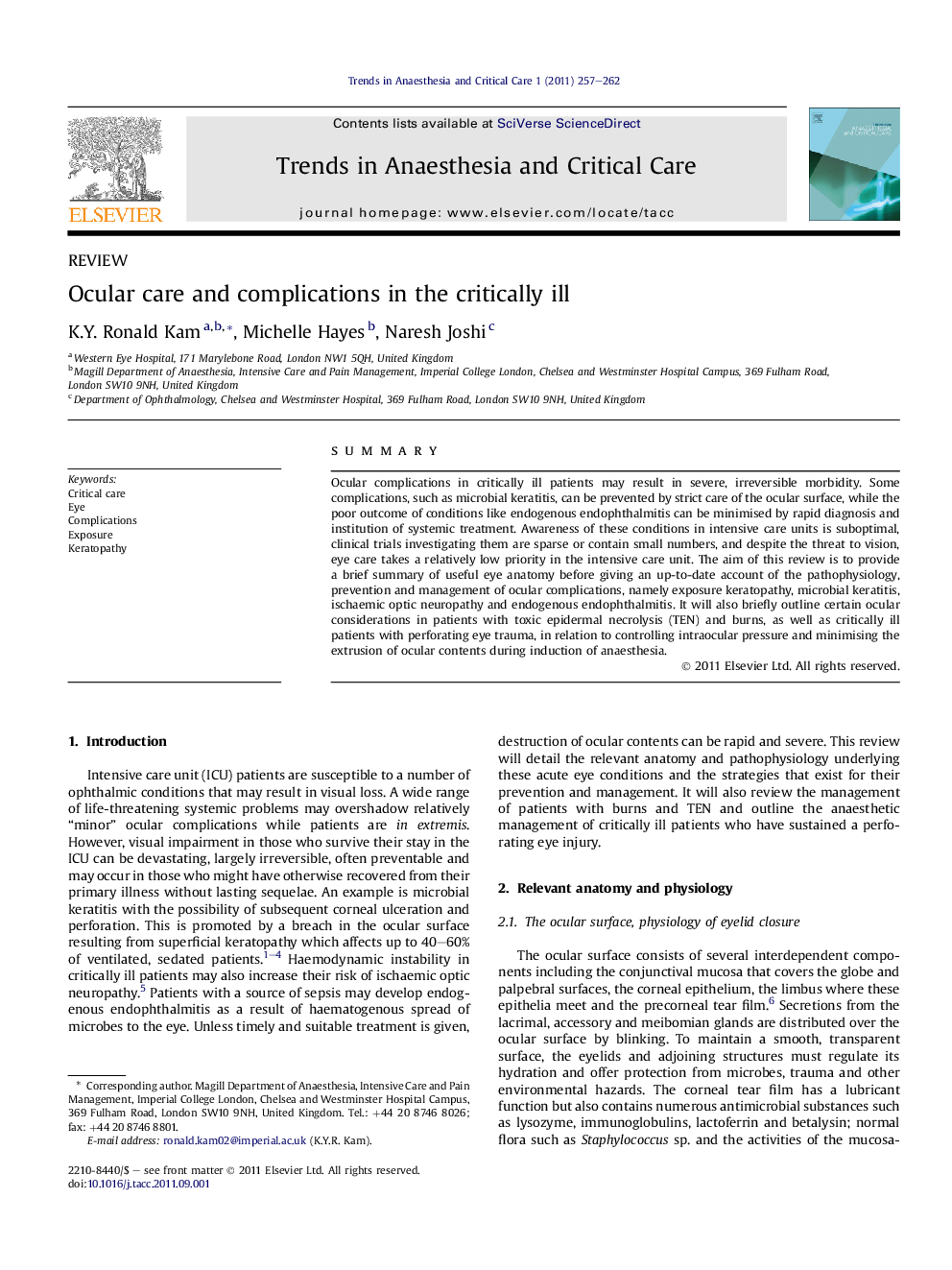| کد مقاله | کد نشریه | سال انتشار | مقاله انگلیسی | نسخه تمام متن |
|---|---|---|---|---|
| 2772829 | 1567883 | 2011 | 6 صفحه PDF | دانلود رایگان |

SummaryOcular complications in critically ill patients may result in severe, irreversible morbidity. Some complications, such as microbial keratitis, can be prevented by strict care of the ocular surface, while the poor outcome of conditions like endogenous endophthalmitis can be minimised by rapid diagnosis and institution of systemic treatment. Awareness of these conditions in intensive care units is suboptimal, clinical trials investigating them are sparse or contain small numbers, and despite the threat to vision, eye care takes a relatively low priority in the intensive care unit. The aim of this review is to provide a brief summary of useful eye anatomy before giving an up-to-date account of the pathophysiology, prevention and management of ocular complications, namely exposure keratopathy, microbial keratitis, ischaemic optic neuropathy and endogenous endophthalmitis. It will also briefly outline certain ocular considerations in patients with toxic epidermal necrolysis (TEN) and burns, as well as critically ill patients with perforating eye trauma, in relation to controlling intraocular pressure and minimising the extrusion of ocular contents during induction of anaesthesia.
Journal: Trends in Anaesthesia and Critical Care - Volume 1, Issues 5–6, October–December 2011, Pages 257–262